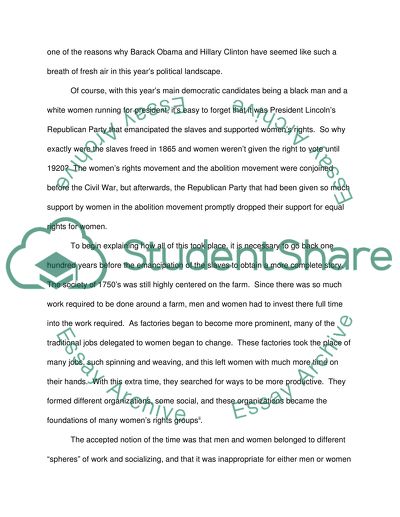Cite this document
(“Why did Radical Republicans Abandoned Women Seeking Rights after the Essay”, n.d.)
Retrieved from https://studentshare.org/miscellaneous/1499618-why-did-radical-republicans-abandon-women-seeking-civil-rights-after-the-civil-war
Retrieved from https://studentshare.org/miscellaneous/1499618-why-did-radical-republicans-abandon-women-seeking-civil-rights-after-the-civil-war
(Why Did Radical Republicans Abandoned Women Seeking Rights After the Essay)
https://studentshare.org/miscellaneous/1499618-why-did-radical-republicans-abandon-women-seeking-civil-rights-after-the-civil-war.
https://studentshare.org/miscellaneous/1499618-why-did-radical-republicans-abandon-women-seeking-civil-rights-after-the-civil-war.
“Why Did Radical Republicans Abandoned Women Seeking Rights After the Essay”, n.d. https://studentshare.org/miscellaneous/1499618-why-did-radical-republicans-abandon-women-seeking-civil-rights-after-the-civil-war.


